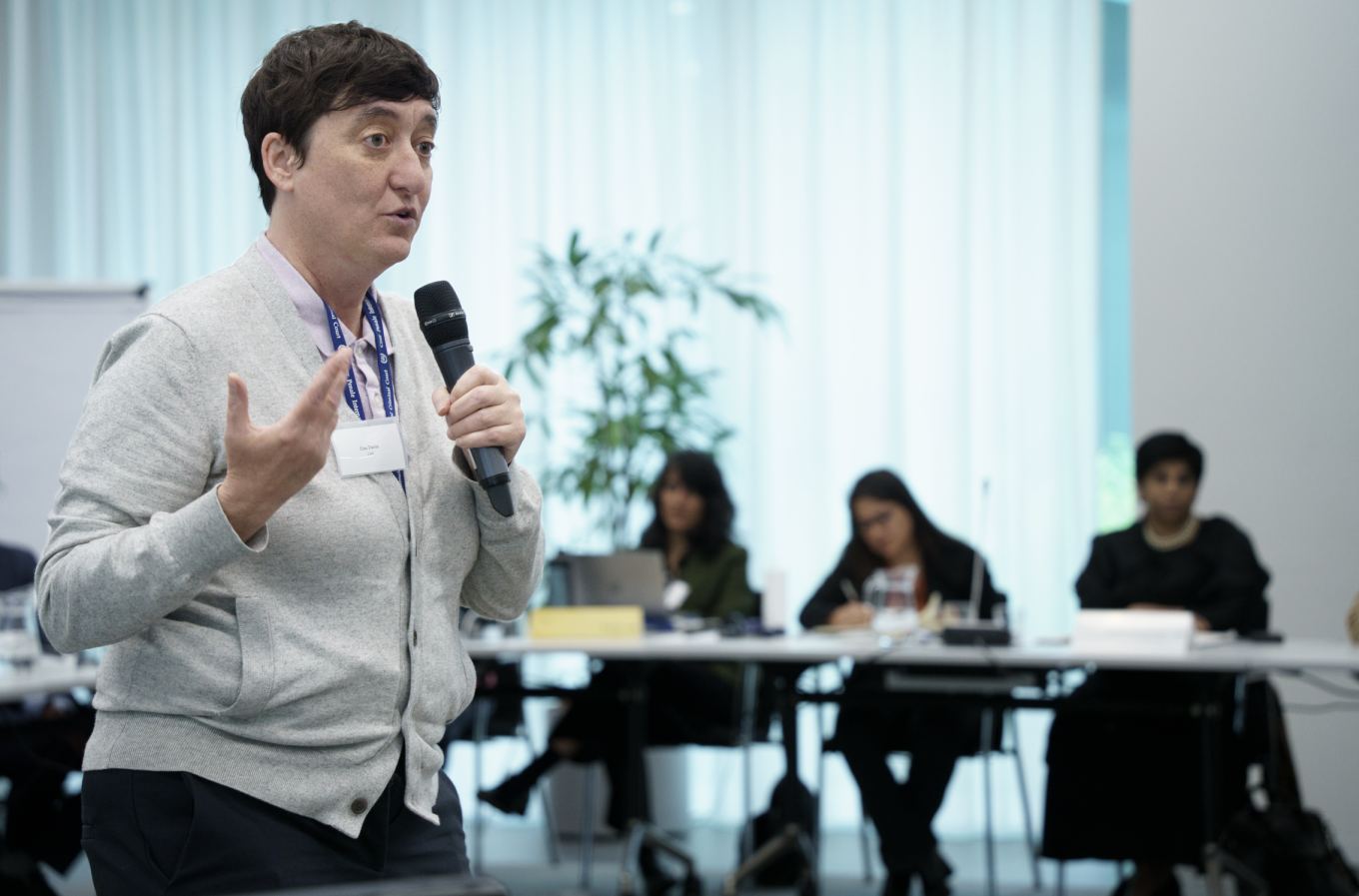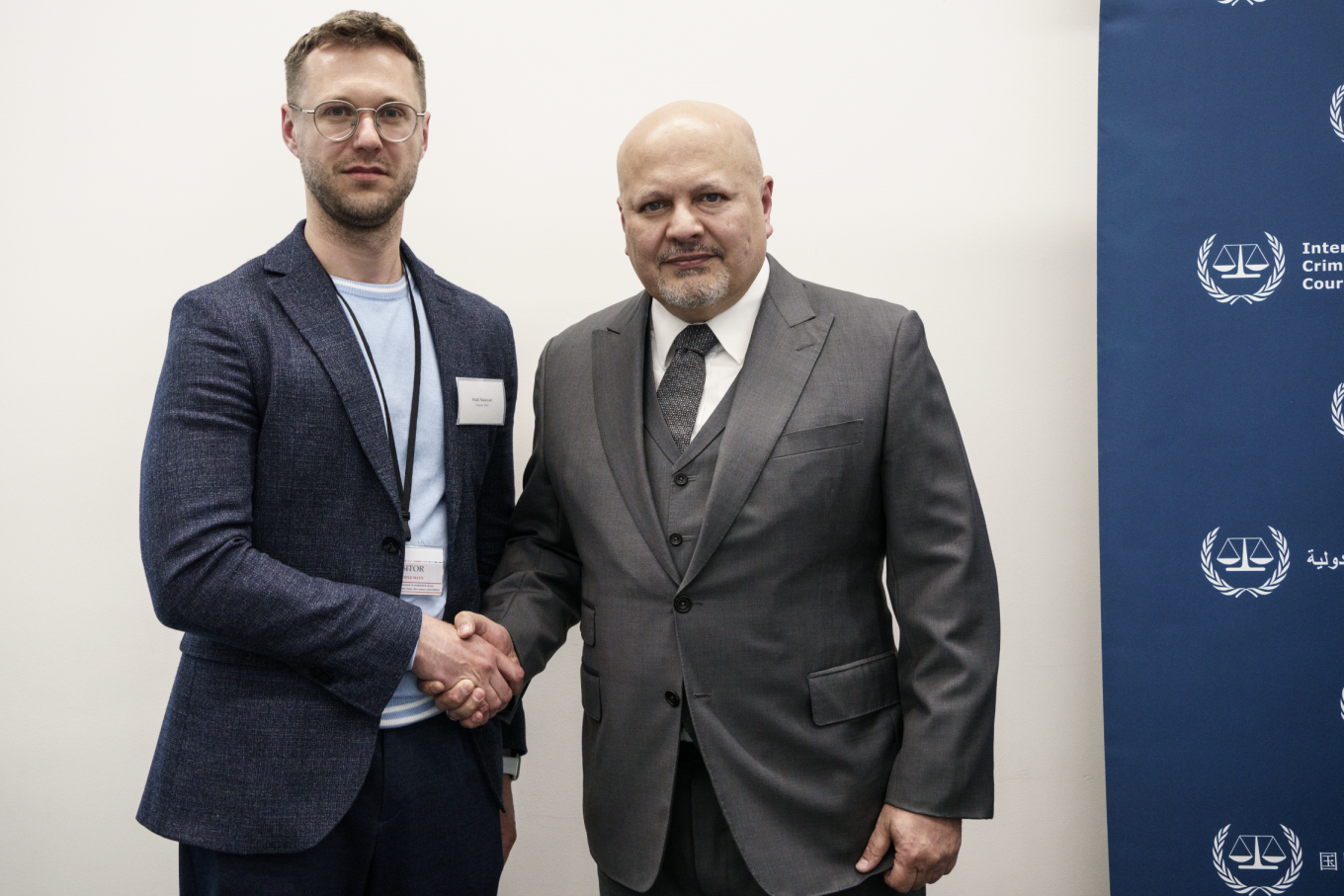
Insights
Gender Persecution: Expanding Access to International Criminal Justice for LGBTIQ People
Region(s)
TOPIC(s)
Type
Commentary
Author(s)
Publish Date
June 29, 2023
Share
Lesbian, gay, bisexual, transgender, intersex, and queer (LGBTIQ) people rarely benefit from access to justice when they are victims of crimes against humanity during armed conflicts and other crises. A historic roundtable at the International Criminal Court in May brought together 20 feminist and LGBTIQ human rights activists with ICC prosecutor Karim A. A. Khan and other senior members of his office, in pursuit of new avenues to justice. Outright International and its partner organizations from Afghanistan, Ukraine, Colombia, and Bangladesh were among those who attended the convening.
The ICC was established to investigate and prosecute offenses that are considered “international crimes,” so grave that they require the full attention of the international community: genocide, crimes against humanity, war crimes, and the crime of aggression (invasion of a foreign country). Persecution based on gender is a justiciable crime against humanity under the Rome Statute, the treaty that created the ICC. But the court has only prosecuted gender persecution once since its establishment in 1998, in a 2019 case involving forced marriage and sexual violence in Mali. The ICC is trying to improve its record by clarifying what gender persecution means and engaging with feminist and LGBTIQ activists from countries with a record or risk of crimes against humanity.
The Office of the Prosecutor issued an unprecedented policy paper in December that gave clear guidance to ICC prosecutors on what should be investigated as gender persecution. Crucially, the guidelines clearly state that crimes targeting LGBTIQ people on the basis of their sexual orientation, gender identity, or sex characteristics should be investigated as gender persecution, which was not explicitly stated in the Rome Statute. Crimes that target LGBTIQ people and may constitute gender persecution are wide-ranging: they may include murder, torture, forced displacement, forced marriage, forced labor along gender lines, corporal punishment for violating gender norms, and more.
A meeting of women’s and LGBTIQ advocates to discuss such crimes would have been hard to imagine in 1998, when the treaty creating the ICC was first ratified. The inclusion of gender persecution was one of the most controversial provisions of that treaty, formally known as the Rome Statute. This language solidified progress made during war crimes trials in the former Yugoslavia and Rwanda, the first times sexual violence was prosecuted as a war crime. But some states were still opposed to making gender-based violence a crime under international law, and it was unclear whether violence targeting LGBTIQ people would be covered under the Statute’s vague language. The politics of that fight weighed heavily on the court for the next 20 years. It was only with Khan’s election as ICC prosecutor in 2021 that the gender perseuction charge, and its relevance to LGBTIQ people, became a major priority for the prosecutor’s office.
Translating the gender persecution policy into real justice for LGBTIQ victims will require concentrated effort. The ICC’s procedures and policies are opaque to many civil society organizations on the ground that could alert prosecutors to possible cases, and sometimes gender persecution takes place in context where it is illegal or impossible for LGBTIQ victim advocacy groups to function. Perpetrators often target their victims because they are already marginalized in their communities, a stigma that makes it hard for survivors to report traumatic crimes after they occur, so building trust is essential.
The May roundtable was an important step toward building those relationships. It is only the second time the ICC has invited civil society activists to The Hague for this kind of dialogue. But this is the work of years, not of days, and the ICC must remain committed to engagement over the long haul. Basira, co-founder of the Afghan LGBT Organization and participant in Outright’s LBQ Connect program, explained: “It's very hard for the Afghan LGBTQ woman to stand for their rights because she's facing two challenges. First of all she's from Afghanistan and living in a country where … all these cultural beliefs are against her voice… If she be a lesbian or if she be queer she feels triple discrimination and violence. That's why we need to give special support for the most vulnerable people of our community.”
Lisa Davis, the special advisor on gender persecution to the prosecutor and organizer of the roundtable, said the first step to accountability for gender crimes is learning to recognize them. These crimes have been ignored by international law for so long that they can be hard to spot, especially where discrimination is taken for granted.

Lisa Davis, special advisor on gender persecution.
“We don't see gender crimes, and we really don't see gender crimes when they're at an intersection of discrimination,” Davis said. Persecution of women in conflict isn’t always identified as a crime because, in many cases, “women were already oppressed in society” before fighting began.
In conflict after conflict, Davis said, combatants place limits on “where you can work, who you can marry, what you can wear, and whether you even just have the simple right to exist.… and they enforce it often through other crimes, like rape, and torture, and murder.” Often they are just exacerbating existing discrimination, Davis said. This has long been true in conflict, but international criminal law is just beginning to develop the tools to effectively prosecute them.
“We know what [these crimes] look like,” Davis said. “But the rest of the world may not.”
The notion of gender persecution was unfamiliar even to many of the feminist and LGBTIQ activists participating in the meeting. They called on the ICC and civil society to team up to educate organizations that might come into contact with victims of gender persecution and to build pathways to safely refer cases to prosecutors.
Valentina Parra of Colombia Diversa, which represents LGBTIQ people persecuted during Colombia’s civil war before the country’s national war crimes tribunal, said even organizations working on gender- and sexual orientation-based violence need to maintain a broad perspective on what might constitute gender persecution and avoid “blind spots,” including when non-LGBTIQ people are targeted for reasons linked to sexual orientation and gender identity. For instance, in Colombia, Parra said, combatants targeted the heterosexual male partners of trans women, perceived as part of a gay couple, and guerrilla groups forcibly recruited children of LGBTIQ people “to make sure that this child didn't become gay like their parents.”

Vitalii Matvieiev of the Ukrainian Outright partner organization Projector shakes hands with ICC Prosecutor Karim A.A. Khan.
Recognizing gender persecution is one part of the puzzle, and building strong networks that link LGBTIQ advocates to the ICC is another. In addition, the international community must do more to offer protection to gender persecution survivors, witnesses, and their families when they agree to come forward. The ICC has little power to protect survivors and witnesses directly, and governments must support its work by assisting with protecting those who testify in their home countries when it is possible, and providing passage to safe countries when it is not.
Khan pointed out at the roundtable, “We can't do business as usual. We can't turn our gaze away from ugly truth that collectively, we have not succeeded” in securing justice for victims of gender-based violence in conflict.
Ultimately, justice in the aftermath of crimes against humanity is not enough. States also must do more to prevent gender persecution, including by repealing discriminatory laws that criminalize same-sex intimacy or obstruct LGBTIQ civil society organizing and advocacy. Where discrimination is embedded in the legal and social fabric of a nation, gender persecution and impunity are likely to thrive. “If you don’t deal with the discrimination,” as Khan observed, “we’re going to keep dealing with crimes.”

Take Action
When you support our research, you support a growing global movement and celebrate LGBTIQ lives everywhere.
Donate Now